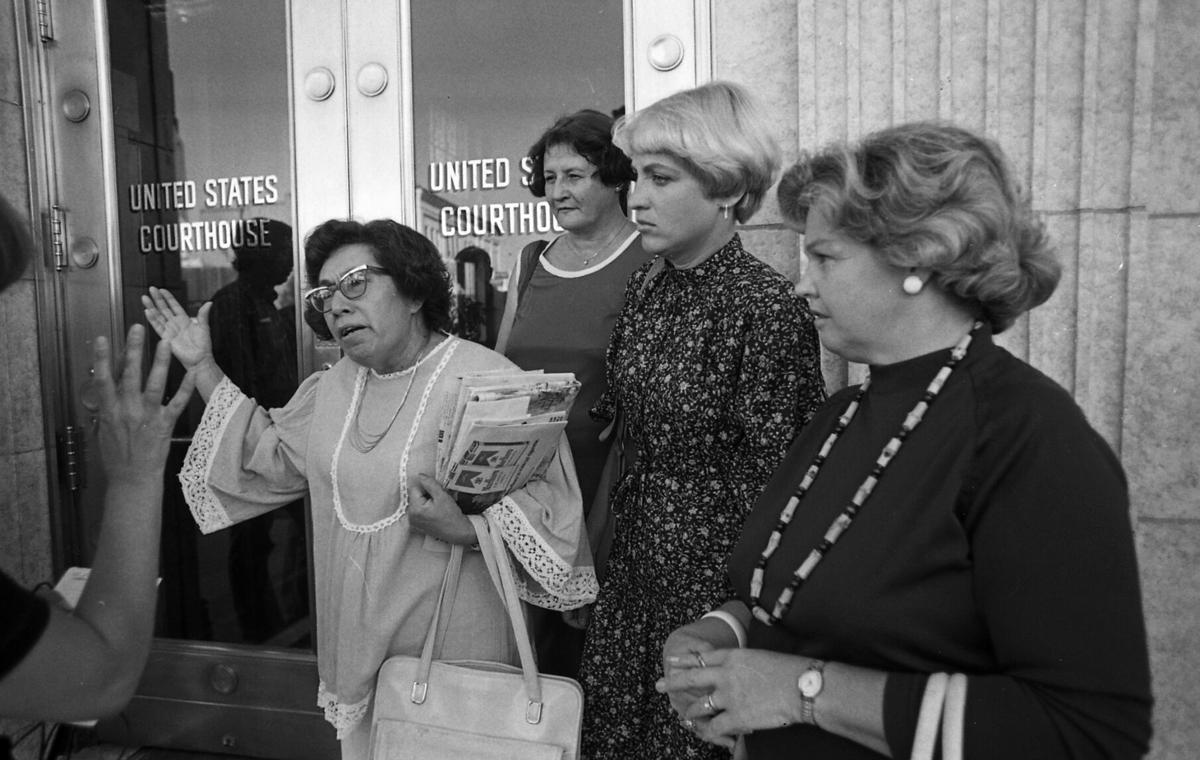After more than 40 years, the Tucson Unified School District is being released from court oversight for its decades-old desegregation case, put in place to eliminate vestiges of past discrimination.
The federal judge in the 43-year-old case granted TUSD full unitary status under the condition that it submits a plan, by May 19, to continue the work of racial equity throughout the district.
“It is time for the district to be released from judicial oversight and held accountable by the community,” Judge David C. Bury, for the U.S. District of Arizona, wrote in the April 19 court order.
Oversight of the post unitary status plan would fall to the governing board, instead of the court.
The case stemmed from two class-action lawsuits filed in 1974 by Black American and Mexican American students alleging segregation in TUSD, and was consolidated a year later. In 1978, the court found that discriminatory segregation existed in TUSD.
Under the federal court order, however, TUSD was required to focus on more than racial integration. The case called for addressing not only quality of education, but student discipline disparities, facilities and technology, transportation and community engagement, among other issues.
The new post unitary plan must include benchmark events that are still to come, continued posting of the district’s annual report for a reasonable period of time to facilitate public transparency and new academic achievement measures for the current school year
TUSD Superintendent Gabriel Trujillo said this is a proud moment for the district, which serves around 42,000 students — 64% of whom are Hispanic and 6% of whom are Black.
“This unitary status plan touches every single classroom, every single locker room facility, every single playing field, every bus route,” he said during an April 4 press briefing. “Therefore, its success is wholly due to the hard working educators and staff members of the Tucson District as a whole. ... We’ve been committed to the foundational principles of the Unitary Status Plan that position this district to be a national leader in culturally-responsive and -relevant instruction and responsiveness to students, as well as equity and opportunity for all students in all of our schools.”
Sylvia Campoy, representative for the Latino plaintiffs in the case, says that monitoring is critical in contending with issues of race and inequity.
“We live in an era during which the reality of institutionalized and structural racism is finally being recognized throughout mainstream America, much due to the viewing of murders by police officers, such as the murder of George Floyd,” she said in an email.
Campoy says TUSD’s most recent data indicates disparity for African American and Latino students in academic achievement as demonstrated in low test scores, low participation in advanced learning programs, a disparity of disciplinary action to African American students, and other critical areas.
The court rejected the plaintiffs’ requests that unitary status not be granted until the district had attained certain measures of equity in areas such as faculty diversity, access to Advanced Learning Experience programs, and narrowing the student achievement gap between white and Black American and Latino students.
In his order, Bury wrote that TUSD had made significant progress on its desegregation efforts over the last six years, putting best practices into place and monitoring their effectiveness.
“These operations over six years, from 2013 through now, have eliminated the vestiges of segregation to the extent practicable over this period of time,” Bury wrote, also noting that the actions during that timeframe show a “lasting commitment” to the efforts undertaken.
“The district has the commitment, the relevant data, technology, and the expertise to make program decisions, now and in the future, based on the effectiveness of strategies and programs to integrate its schools and afford equal access to educational opportunities and improve academic achievement for African America and Latino, including English-learner students,” he said.
THE PATH FORWARD
For decades, TUSD has accessed about $63 million annually from a tax levy to cover expenses in the desegregation effort. Trujillo says that will continue for the coming school year with the budget nearly finalized. Desegregation funding pays for student services like magnet, dual-language and gifted and talented programs.
But going forward, the district will work with the desegregation expert who oversaw the case to figure out the price tag for the programs and structures that allowed the district to become more integrated and expand learning experiences to more students while also looking at what can be cut, such as legal fees.
“Our goal as an administration is to bring a modicum of relief to the homeowners and the taxpayers that have footed the $63 million bill for the last 40 years, but doing so responsibly, doing so collaboratively through structures of community oversight and transparency that allow us to maintain all of the great programming that promoted integration and access and opportunity,” Trujillo said.
In addition to developing a post unitary status plan, the district also has to respond to two outstanding requests for information, by May 3, from each of the plaintiffs.
One request is whether the strategies to open TUSD’s newest schools — Innovation Tech and Wakefield — promote integration and have been implemented with fidelity, and the other is responding to an inquiry that says the district is in violation of the court’s order by failing to include academic performance for Black and Latino students in its criteria for 2021 magnet school plans.
The district is also responsible for filing a report by May 31 on shuttle bus routes running to University High School to support racial integration in advanced learning experiences.
With those final items, Trujillo hopes to have the case closed by May 31, though he recognizes the plaintiffs could appeal the judge’s decision, as they successfully did after the court granted TUSD unitary status in 2009.





